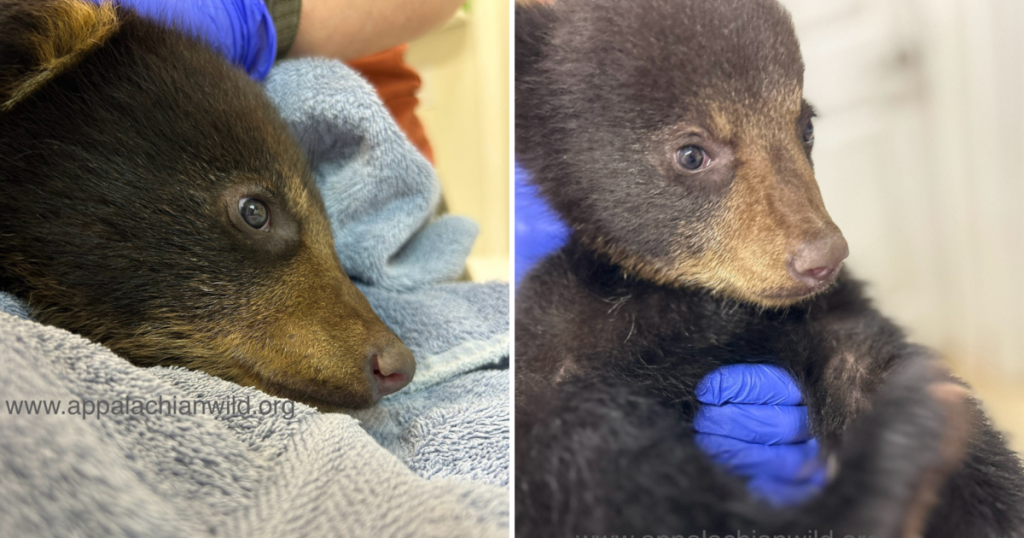An orphaned bear cub was rescued from a tree by a group of people who were apparently trying to take pictures with her. The cub was taken in by the Appalachian Wildlife Refuge on April 16. One of the cubs was missing by the time the North Carolina Wildlife Resources Commission arrived, but the other, who is now with the refuge, was lethargic, limping, and had a low body temperature. The cub is now thriving and doing well in care, eating well and interacting with enrichment activities alongside another orphaned cub.
It is not uncommon for baby animals to be away from their mothers in the spring and summer as they are left in safe spaces while their mothers search for food. Even though they may appear orphaned or abandoned, they are usually right where they are supposed to be. In the video from April 16, two small cubs were seen perched in a tree near an Asheville apartment complex. A group of people approached the tree and grabbed hold of the bears, with one person yanking down a bear and holding it as if it were a child.
The second cub in the video managed to free itself temporarily and ran over to a fence, where it was caught by an individual. Wildlife officials from the commission arrived on the scene to find one cub in a retention pond on the property and took it to the refuge for rehabilitation. The commission cautioned the individuals involved in the incident about the importance of leaving bear cubs alone and determined that no charges would be filed against them.
The Appalachian Wildlife Refuge has rehabilitated many injured or orphaned bear cubs since 2020. Caring for the cubs can be costly, with expenses exceeding $3,000 to get a single cub to a healthy weight. The facility is closed to the public to limit human interaction with the animals, and a small team works with the cubs to keep them as wild as possible while being rehabilitated. The cubs are expected to be released as wild bears in the fall.
The Appalachian Wildlife Refuge relies on donations for funding as they spend $20,000-$30,000 per season on the cubs for food, medical expenses, habitat maintenance, and enrichment. While they prefer to see all wild animals remain in the wild and be raised by their mothers, they provide a necessary intervention for those that truly need it. The team at the refuge works hard every day to give these wild animals a place to go for rehabilitation and eventual release back into the wild.


